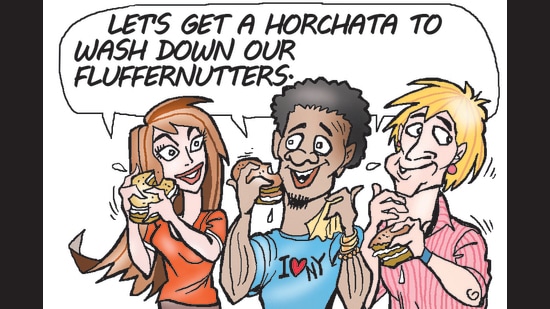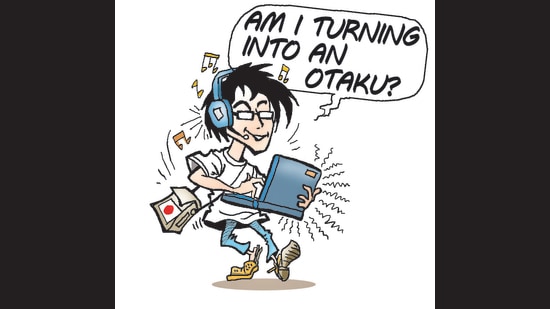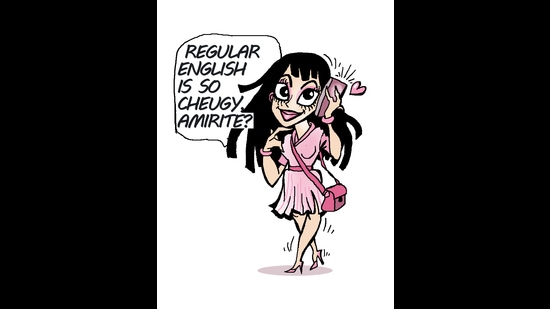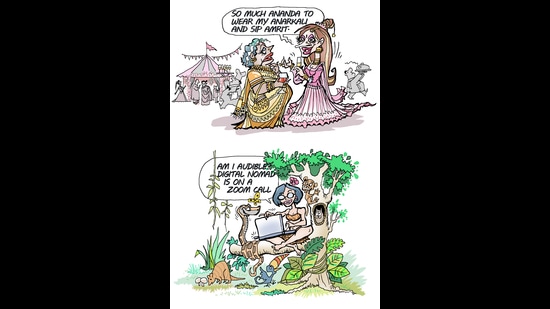While social media users spent much of the last fortnight looking up the (made-up and wholly complimentary) “meanings” of names on UrbanDictionary.com, other word repositories have been busy.
Merriam-Webster added 455 words to its dictionary, in its latest update. Most of those words started out as slang. But that’s precisely the point, amirite?
If you’ve heard that truncation before, you probably know that I’m not requesting a fact-check. The interjection, tacked on to the end of a statement, is an informal, almost rhetorical, way of saying “Don’t you agree?” And Merriam-Webster just made it an official word.
TBH, it’s the dictionary’s job to record how we make sense to ourselves in the now. So any inclusion of slang is a move FTW. Yes, they’ve included the short forms of To Be Honest and For the Win too.

Even familiar words on the list come with new layers of meaning. Astroturf no longer refers only to patches of synthetic lawn. Merriam-Webster says it can also be applied to an organisation or a project that has been “falsely made to appear grassroots”. A “breakthrough” isn’t just a eureka moment in a lab (or at the end of a Zoom meeting). It also refers to an infection that has occurred in a vaccinated person.
“Dad bod”, the soft-around-the-edges physique typical of gym-goers who’ve settled into domestic life, is now a compliment. And a “digital nomad” doesn’t just spend their life online, they work via the internet, making their oft-changing physical location irrelevant.
Theresa Joseph taught high-school English at two Mumbai schools for three decades before she retired in 2019. “These are all words and usages that would have earned red lines in a student’s essay,” she says. “I’m glad to see that dictionaries are not stuck in the past. That they’re reflecting contemporary life, as all languages do.”

Merriam-Webster’s reflections, for the moment, show a world that’s more closely linked than ever before. The list includes “otaku”, a Japanese-origin term for a nerd with obsessive interests; “horchata”, a Mexican drink made with pounded rice or almond and flavoured with cinnamon or vanilla. Even “fluffernutter”, a peanut-butter-and-marshmallow sandwich commonly eaten in the north-western US is now official .
Foreign aides
Merriam-Webster typically makes additions twice a year; their last instalment was in January. The Oxford English Dictionary has been busy too. Three of its four annual updates are out (the last one is due in December) and the abundance of Korean terms inducted reflects South Korea’s rising cultural clout. The September update included “aegyo”, the characteristic cutesy Korean charm much like the Japanese kawaii; “K-drama”, legitimising the short-form used by viewers around the world. And the delightful “skinship”, a portmanteau of “skin” and “kinship” that is used to indicate the close physical contact between parent and child, between lovers, or between friends.
For Sonali Shah, deputy editor at Elle magazine and a longtime K-drama fan, the words are an essential key to understanding the intricacies of Korean culture. “They have, for instance, several terms for “you”, and it’s a complex maze of how you address someone older, younger, or in a position of respect,” she says. “They also use a term, ‘some’, specifically for the short time two people might spend together before they decide to start dating. It’s not actually dating. And when you compare these words to English, Korean culture seems so rich.”

A colourful Trinidadian phrase has made it into the OED too. Anyone who talks endlessly could be said to “eat parrot head”. Meanwhile “kaitiakitanga” is more than a Maori crossover. The term means guardianship or management, particularly as environmental stewardship. As with “eco-anxiety” and “decarbonisation”, it’s a sign of the times.
Terms and conditions
Ideas from the subcontinent have been echoing across the English-speaking world. Part of the OED from this year are “amrit”, “ananda”, “anarkali” (for the garment), and an added definition for “fast food” (for foods that are permitted during a religious fast).
The OED’s Word of the Year for 2021, meanwhile, is the straightforward “vax”, short for vaccine or vaccination. Merriam-Webster will announce its WOTY soon. Collins, the Scottish dictionary compilers, have declared “NFT” their word of the year, for the non-fungible tokens that have become a fad as digital financial assets.

Also on their list of words that define the year is “metaverse”, for a complex virtual universe; “pingdemic”, the UK phenomenon in which those in contact with a Covid-infected person were pinged to go into isolation; and “neopronoun”, referring to gender-neutral pronouns such as xe/xem/xyr, ze/hir/hirs, and ey/em/eir, which are increasingly being substituted for he/him, she/her, they/them. Haven’t encountered them all year? You must be “cheugy”, another of Collins’s words of 2021. It’s a dismissive term for anyone uncool.
Enjoy unlimited digital access with HT Premium
Subscribe Now to continue reading

Stay connected with us on social media platform for instant update click here to join our Twitter, & Facebook
We are now on Telegram. Click here to join our channel (@TechiUpdate) and stay updated with the latest Technology headlines.
For all the latest Art-Culture News Click Here

